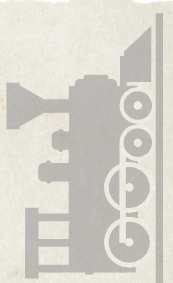MEDICAL TRAIN
In Khani, a small village under the snowy peaks of the Stanovoy Mountains in Russia, there is a queue of patients waiting next to the Baikal-Amur Mainline (BAM) railway line to see the doctor. They are waiting for the Matvei Mudrov train – a mobile medical clinic with basic equipment, examination rooms and twelve to fifteen doctors on board. The Matvei Mudrov takes its name from a nineteenth century Russian doctor. He was one of the first doctors to promote treatment of the patient as an individual, not just the disease.
Khani is typical of settlements along the BAM, a reminder of the growth era of the Soviet Union, when services were plentiful, but now, with little access to specialist health care, its community is dependent on the Matvei Mudrov. Among the people in the queue is a man who has broken both ankles and a teenage girl needing a post-operative check-up. She had appendicitis a month earlier and, luckily, was able to get to a town three hours away for treatment. The Matvei Mudrov is not equipped for surgery, although its doctors can offer a diagnosis and recommend a course of treatment. The medical train is one of the few points of contact that those along the BAM have with the rest of the country.
The town of Berkakit is larger than Khani but similar in many ways. It was once home to as many as 9,000 people. Today, less than half remain. They are happy to live there, though. Mikhail Zdanovich is one of them. Now 61, Zdanovich was sent to live in Berkakit in 1976, when he had just finished Soviet military service. He married a woman who worked at the town bakery, and they settled in the town. Zdanovich’s right arm is in a fabric sling: he is waiting for surgery on his shoulder in Khabarovsk, about 1,600 kilometres away. He wants to ask the doctors if he should work in the meantime. As soon as Zdanovich goes into the office, the doctor, Yelena Miroshnichenko, cries ‘Oh, Mikhail Pavlovich, I recognised your voice.’ Miroshnichenko writes a letter to say that he can’t work while he’s waiting for his shoulder to be treated. He leaves, happy, and then he returns a few minutes later. He brings freshly baked cabbage pies and a jar of goat milk. The patients treated on the train generally praise the doctors for their honesty and competence.

